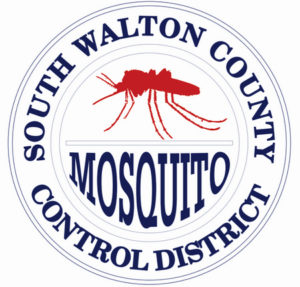When the weather heats up in Florida, you know yellow fly (Diachlorus ferrugatus) season isn’t far behind. This past winter was one of the hottest on record and yellow flies have come out to bite early. Yellow flies are known for their painful bites and just like mosquitoes, only females take a blood meal for egg production while males prefer to feed on nectar and pollen. When it is time to lay their eggs, females find objects perched over water or mud so that the larvae will fall into a wet environment upon emergence, which is generally 5-12 days later. Again, just like mosquitoes, yellow flies go through a larval and pupal stage before emerging as the adults we loathe. As springtime temperatures increase larvae become active and begin to feed. Found in heavily shaded root mats of woody plants, such as cypress, the larvae eat mostly decaying organic matter. In their habitats they molt upwards of 10 times before moving to drier soil and pupating. At this point they will rest in this stage, not eating, until they finish development and emerge into adult flies. The life cycle from egg to adult takes approximately one year.
Biting flies tend to appear as early as March and as late as September, with the peak season lasting from April through June. They are vicious daytime biters, though they prefer the late afternoon and cloudy days. Residences near forest and/or large bodies of water (not saltwater) have a higher chance of encountering this pest as well. Unlike mosquito larvae, there are no effective methods to control yellow fly larvae yet. However, mosquito repellents, especially those with DEET, have proven moderately effective against yellow flies unless numbers are abundant and food sources limited. Because of this, it is recommended that gloves and head coverings be worn for guaranteed protection from these nuisances; especially if a person has hypersensitivity to such bites.
Since there are no current means to effectively control yellow fly populations around the Gulf Coast, and specifically South Walton County, South Walton County Mosquito Control District (SWCMCD) dedicates time every year to the creation of yellow fly sticky trap kits to help control populations for single residences. Trap kits are limited to one per household, and the kit includes one inflatable ball, string, all-weather adhesive (glue), and gloves. An instruction sheet is also included for easy installation and sources for materials if further traps are needed. If you have any questions, please call SWCMCD at (850) 267-2112 or email Hallie Oalde, publicrelations@swcmcd.org.

The post Yellow Fly Season Has Come Early! appeared first on South Walton Life | 30A News, Events and Community Information.

Be the first to comment on "Yellow Fly Season Has Come Early! "